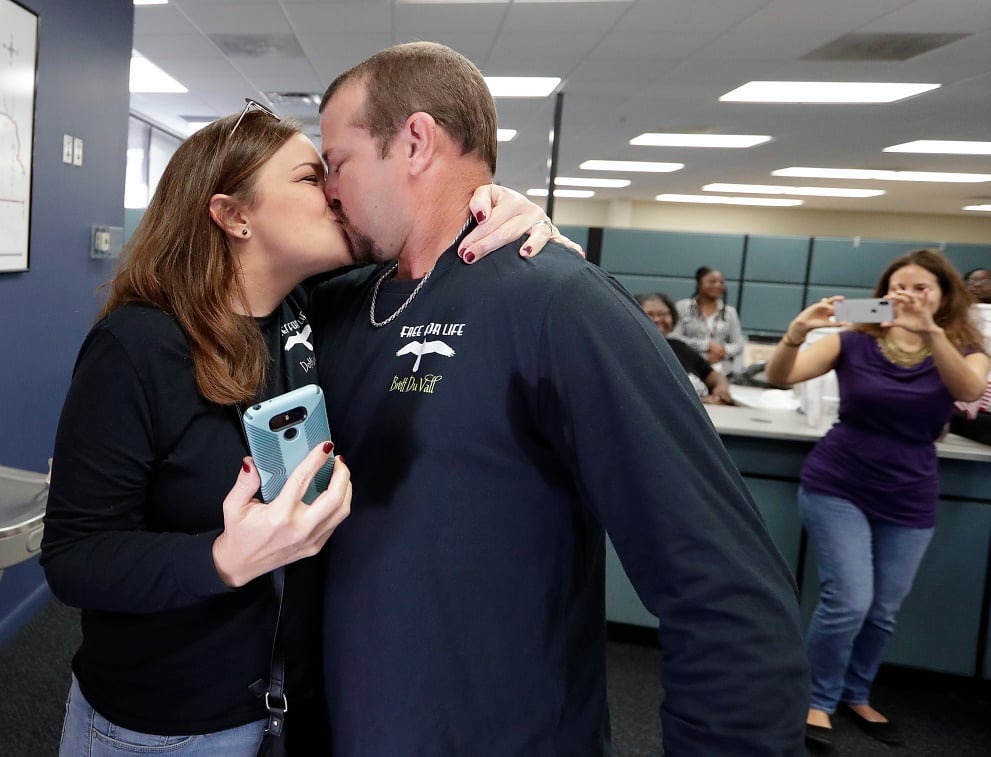TALLAHASSEE, Fla. (CN) — Attorneys for 17 plaintiffs with felony convictions continued to grill Florida election officials Tuesday over a hastily prepared policy to determine the voting eligibility of felons with outstanding fines, as a pivotal federal voting rights trial neared its end.
The trial, held via teleconferencing due to the coronavirus pandemic, revolves around SB 7066, a law passed last year to implement Amendment 4, a constitutional amendment restoring voting rights to most felons “after they complete all terms of their sentence including parole or probation.” The amendment itself did not mention restitution or fines.

Last summer, the 17 felons sued Republican Governor Ron DeSantis, Secretary of State Laurel Lee and several supervisors of elections over SB 7066. The plaintiffs’ attorneys contend the law circumvents the ballot measure with onerous roadblocks that could prevent felons from ever exercising the right to vote. Attorneys for the state argue voters knew felons must pay all fines and fees before voting when they passed Amendment 4.
Florida does not have a statewide database for elections officials to check if felons paid all their fines and restitution, raising fears among criminal justice advocates that the state’s convoluted patchwork of record-keeping could prevent otherwise eligible felons from voting.
More than 774,000 felons have some type of legal financial obligation, according to a study submitted to the court.
During her testimony on Tuesday, Maria Matthews, director of Florida’s division of elections under the Secretary of State’s office, said the state’s new procedures for identifying felons with outstanding fines and restitution is still under development.
“We’re still in the process of learning these things,” Matthews said. “The training hasn’t stopped yet.”
But plaintiffs’ attorney Mark Gaber of the Campaign Legal Center peppered Matthews with various scenarios from the 17 plaintiffs that sought to poke holes in the new policy.
Matthews’ office does not have a way to figure out all fines and restitution owed from federal convictions, except for using PACER, a national index for federal district courts. Her staff also relies on an outdated website to check felon voting rights requirements in other states, Matthews’ testimony showed.
“This is a resource, it’s not the only document, the only resource we are going to rely on,” Matthews said of ProCon.org, a nonprofit website that researches controversial issues.
The site includes a table with state felon voting laws. Some of the information is outdated, Gaber asserted, including for Florida.
Gaber also highlighted issues with restitution orders. The state’s attorneys maintain felons would be responsible for paying restitution ordered at the time of sentencing, but Gaber pointed to orders that came months or even years after sentencing.
The attorney asked whether felons would have to pay restitution orders issued after their sentencing before registering to vote.
Matthews said if the sentencing documents show the court reserved the right to order restitution at a later date, the offender would have to pay the amount due before registering to vote.
One of the plaintiffs, Sheila Singleton, testified last week that she received a restitution order nearly three years after sentencing. She currently owes more than $16,000.
The plaintiffs’ attorneys also called upon Amber Marconnet, the assistant director of Florida’s Division of Elections, who seemed to refute earlier testimony regarding when state elections officials drafted the new policy.
In earlier hearings, attorneys for the secretary of state said election officials would look at the total amount owed at the time of voter registration. During Matthews’ testimony on Monday, she said her office will only look at restitution and fines ordered at the time of sentencing and not costs or interest assigned after that date. In addition, she said, payments made to the court will reflect on the original amount owed at the time of sentencing and not actual outstanding balance.
This revelation irked U.S. District Judge Robert Hinkle, who said the new policy “fundamentally changed this case.”
“At some point, I want to know who came up with this plan and when did they come up with it,” Hinkle said on Monday, implying the state’s attorneys should have disclosed the details earlier. “I have no problem if the state changed their position, but I want to know when.”
During her testimony on Tuesday, Marconnet said the new policy was drafted in March by the secretary of state’s legal counsel.
The American Civil Liberties Union, Campaign Legal Center and other criminal justice groups brought the case, Jones v. DeSantis, on behalf of the plaintiffs last summer.
This past October, Hinkle issued an injunction blocking SB 7066 for the 17 plaintiffs in the case. In February, the 11th Circuit upheld the injunction and later denied the state’s request for an en banc rehearing.
Earlier this month, the judge approved a class action certification in the case and signaled his decision in the trial will apply to all affected felons in Florida, not just the 17 plaintiffs protected by the initial injunction.
Hinkle, a Bill Clinton appointee, will hear closing arguments in the trial on Wednesday.
Subscribe to Closing Arguments
Sign up for new weekly newsletter Closing Arguments to get the latest about ongoing trials, major litigation and hot cases and rulings in courthouses around the U.S. and the world.








